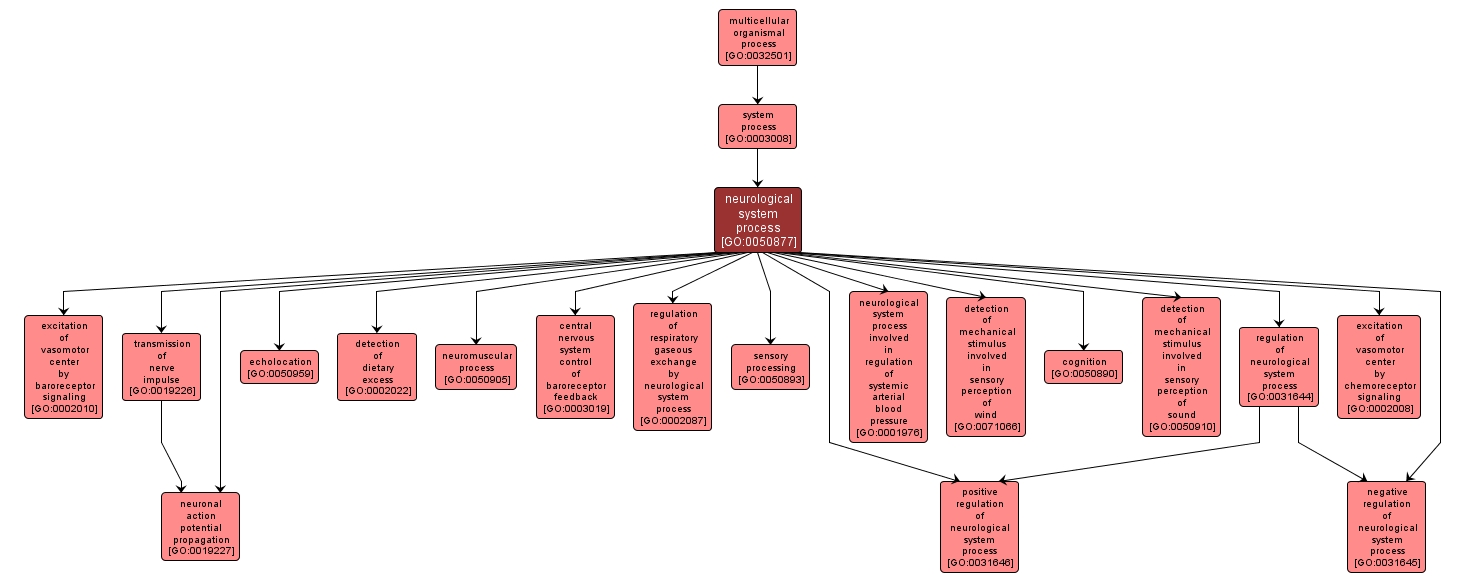GO TERM SUMMARY
|
| Name: |
neurological system process |
| Acc: |
GO:0050877 |
| Aspect: |
Biological Process |
| Desc: |
A organ system process carried out by any of the organs or tissues of neurological system. |
Synonyms:
- neurophysiological process
- pan-neural process
|
|

|
INTERACTIVE GO GRAPH
|














